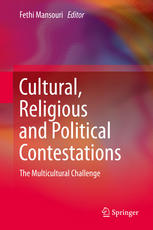

Most ebook files are in PDF format, so you can easily read them using various software such as Foxit Reader or directly on the Google Chrome browser.
Some ebook files are released by publishers in other formats such as .awz, .mobi, .epub, .fb2, etc. You may need to install specific software to read these formats on mobile/PC, such as Calibre.
Please read the tutorial at this link: https://ebookbell.com/faq
We offer FREE conversion to the popular formats you request; however, this may take some time. Therefore, right after payment, please email us, and we will try to provide the service as quickly as possible.
For some exceptional file formats or broken links (if any), please refrain from opening any disputes. Instead, email us first, and we will try to assist within a maximum of 6 hours.
EbookBell Team

4.8
104 reviewsThis book examines the foundations of multiculturalism in the context of émigré societies and from a multi-dimensional perspective. The work considers the politics of multiculturalism and focuses on how the discourse of cultural rights and intercultural relations in western societies can and should be accounted for at a philosophical, as well as performative level. Theoretical perspectives on current debates about cultural diversity, religious minorities and minority rights emerge in this volume.
The book draws our attention to the polarised nature of contemporary multicultural debates through a well-synthesised series of empirical case studies that are grounded in solid epistemological foundations and contributed by leading experts from around the world. Readers will discover a fresh re-examination of prominent multicultural settings such as Canada and Australia but also an emphasis on less examined case studies among multicultural societies, as with New Zealand and Italy.
Authors engage critically and innovatively with the various ethical challenges and policy dilemmas surrounding the management of cultural and religious diversity in our contemporary societies. Comparative perspectives and a focus on core questions related to multiculturalism, not only at the level of practice but also from historical and philosophical perspectives, tie these chapters from different disciplines together. This work will appeal to a multi-disciplinary audience, including scholars of political philosophy, sociology, religious studies and those with an interest in migration, culture and religion in contemporary societies.